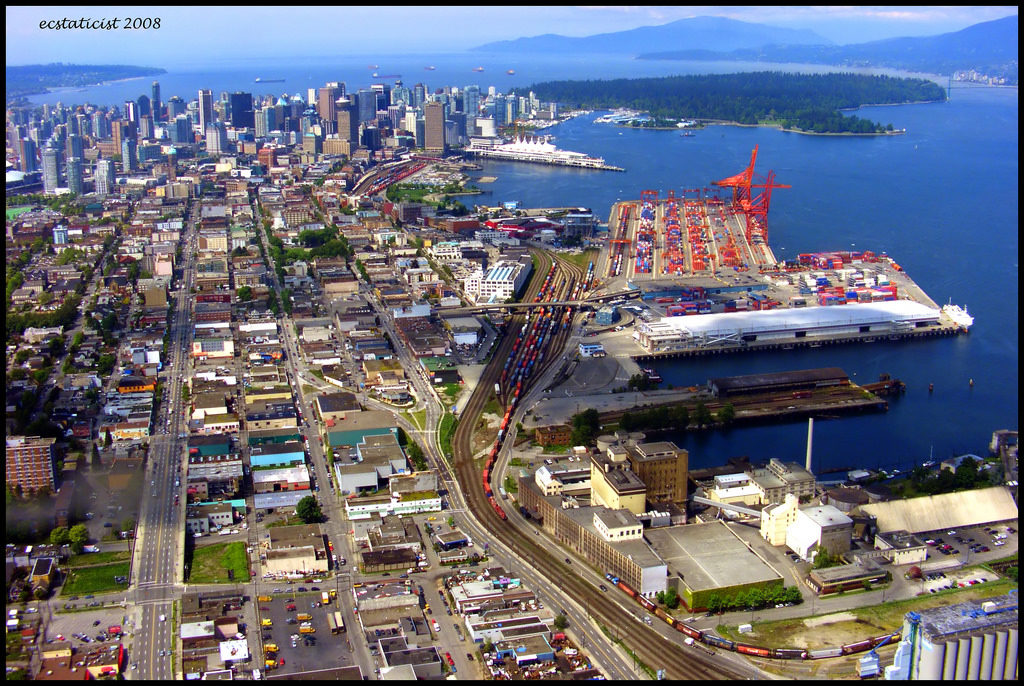Not the kind of port reform we were hoping for
Just when you thought public input into major resource export proposals couldn’t be undermined any more than it already has, you get something like Bill C-43.
This omnibus bill, which was introduced this fall and is likely to go to a vote any day now, could give port authorities like Port Metro Vancouver (PMV) and their industry allies even more power than they already have. It does this by allowing for ownership of federal lands by ports, giving their projects a free pass – opting them out of the already woefully weak environmental assessment process and the Species at Risk Act – and closes the door on public disclosure rules.
Since I started at Dogwood as the Director of the Beyond Coal campaign, we’ve been working hard to democratize decision-making at Port Metro Vancouver in order to avoid having to repeat messy battles like the fight to stop U.S. thermal coal at Fraser Surrey Docks.
Now it looks like port leaders and their industry allies think things need to change, too – but their solution is to shut down public scrutiny and environmental assessment altogether.
Here’s a likely scenario: faced with unprecedented public opposition to proposed U.S. thermal coal export expansion, widespread calls for rigorous environmental and health impact assessments, and Access to Information requests from citizens’ groups, PMV executives went to Ottawa to ask those in power for protection against these pesky nuisances.
Past omnibus legislation has already gutted the Canadian Environmental Assessment (CEAA) and Navigable Waters Acts, allowing PMV to consolidate assessment under its auspices and basically exempt all but the largest and most egregious proposals from triggering a formal assessment under CEAA.
For example, when Fraser Surrey Docks came forward with its risky scheme to transship thermal coal from the U.S. Powder River Basin through Texada Island to Asian markets, port bureaucrats had the sole authority to say the proposal did not trigger CEAA and were able to grant a permit with minimal environmental study and no public consultation.
Luckily British Columbians got organized, forcing Port Metro Vancouver to slow down their plans. In the face of backlash, they conducted window dressing assessments and consultations to try to save their public image.
Every time we ask how far the federal government will go to ram unwanted carbon export projects down British Columbians’ throats, it seems the answer is ‘as far as it takes.’ This latest omnibus surprise could radically change the way decisions are made about local port development in B.C. by handing public lands over to private interests and allowing a fully industry-captured port authority to completely shut local residents and governments out of any opportunity to reject risky export schemes, or even judge the health and environmental impacts they would have on their communities.
As if this weren’t bad enough, the minister who tabled the bill, Joe Oliver, is on record accusing people who care about things like clean air, healthy salmon rivers and a pristine coastline, of being “radicals.”
Let’s make sure 2015 is the year we expose the true radicals putting Canada’s future at risk. Together we can take back our democracy. Port reform leading to increased transparency and public input would be a good place to start.
Check out this blog post by West Coast Environmental Law to learn more about Bill C-43
UPDATE: Bill C-43 received Royal Assent on December 16, 2014. The senate considered the 460-page Bill for just three days before approving.

